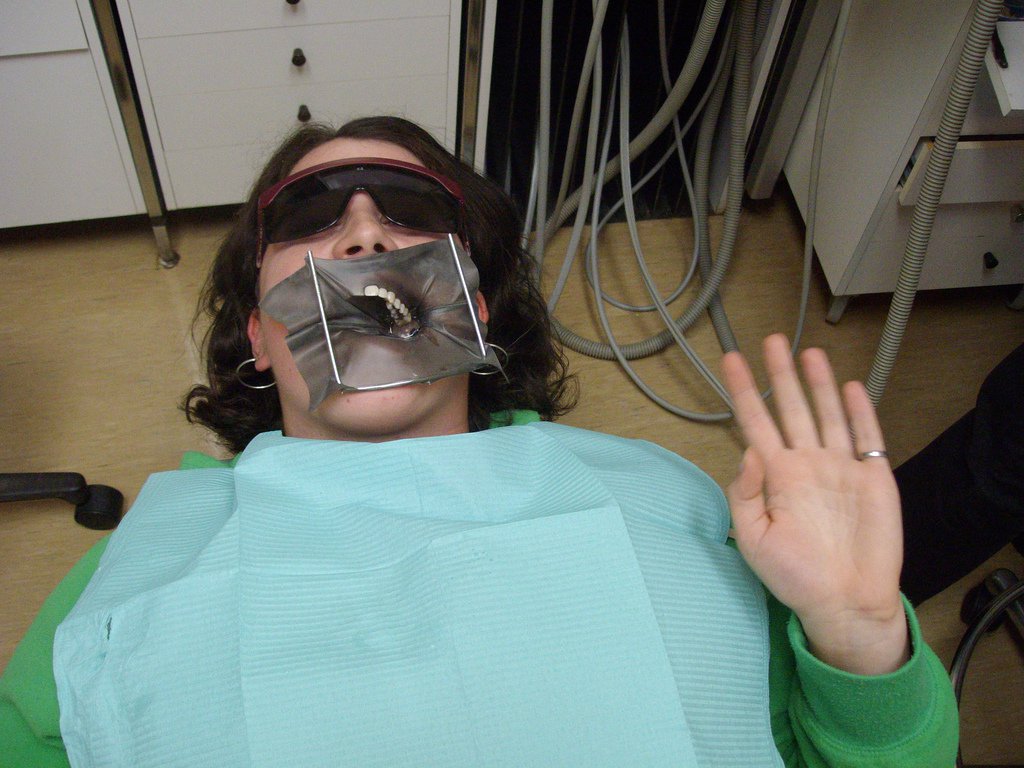Why You Shouldn't Fear a Root Canal
Few words terrify dental patients like "root canal." Your dentist might suggest a root canal if you have damaged teeth, severe cavities, an abscess, or trauma from past dental procedures. While solving these problems is appealing, many patients balk at the perceived pain and cost of the procedure. However, root canals aren't as scary as you think.

Image via Flickr by the.barb
The Procedure is Straightforward
For many people, the fear of the unknown stirs their anxiety. If you're one of them, understanding what will happen can calm your fears.
You'll receive a local anesthetic to numb your mouth and a rubber dental dam to keep your tooth clean and dry during the procedure. Your dentist will then drill a small hole through your tooth to access the infected pulp at your tooth's core. After receiving the anesthetic, you shouldn't feel this. A small suction tool captures bacteria-laden oral fluids and diseased pulp, like a vacuum cleaner collecting dust.
After removing the infected pulp, your dentist replaces it with a material called gutta-percha to strengthen your tooth and prevent bacteria from entering. A more permanent solution, such as a filling or crown, will usually replace the gutta percha later.
If you have further questions, your dentist will happily to answer them. Booking a non-invasive consultation to talk about the root canal procedure can help set your mind at ease.
It Isn't Likely to Hurt
One of the most persistent myths about root canals is that they hurt. A lot. However, root canal patients are six times more likely to say the procedure was painless than patients who haven't had the treatment, partly because modern anesthetics are so good. What you'll physically feel is no worse than the discomfort of a simple filling.
Once the anesthetic wears off you'll likely experience some sensitivity and minor aches, but these should subside in a few weeks. Over-the-counter pain relievers can ease these pains.
You'll Be in the Chair for Ages
"Ages" is a relative term. Root canals are admittedly some of the most time-consuming dental procedures, but they take far less time than they did in your grandparents' day.
Most root canals take a couple of hours to complete. That can seem like a long time if you're used to routine check-ups and cleans. However, the time will pass more quickly if you load some favorite albums or e-books onto your phone.
Most root canals are also completed in one appointment. Many patients need to come back for a crown or filling, but others with less severe root canals can get everything they need in a single session. Your dentist will assess how long you'll be in the chair during an initial consultation so there are no nasty surprises.
Your Dentist Will Work With You
Phobias aren't logical. For some people, learning the facts about root canal isn't enough to assuage their fears. Remember your dentist has dealt with nervous patients before, so you needn't be embarrassed about your anxiety. Instead, own it and be honest. If your dentist knows you're worried, he or she will take a little more time and care throughout the procedure. Your dentist wants you to be comfortable and this can only be achieved through open, honest communication.
It Doesn't Have to Be Expensive
Often the fear of pain is only matched by the fear of an expensive bill at the end of the procedure. But getting a root canal doesn't have to cost a lot of money.
Admittedly a root canal is more expensive than a filling because the procedure takes more time and skill. However, it's not as pricey as some other procedures, like tooth extraction and replacement. On average, a root canal in the United States costs $700.
You can also reduce your root canal cost by joining a discount dental plan. For example, Carefree Dental members typically save 41 percent on root canals. They're also eligible for savings immediately after receiving the card, so there's no need to delay treatment.
Root Canals Are Very Effective
Many people worry about root canals failing, as they did in the past. However, modern dentistry has come a long way in the last 50 years. Today, root canals have a lifetime success rate of 85 percent. So while there are no guarantees you won't have problems down the line, it's very unlikely.
If your dentist tells you that you need a root canal, take a deep breath and remember there's no need to fear it. It's a relatively painless procedure, especially when compared the suffering you'll endure if you delay treatment.





